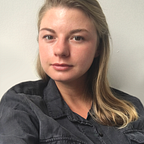I Used the Skills I Learned at a Coding Bootcamp to Fill in the Gaps in Its Curriculum
Bootcamps teach you how to code in a short and intense program. As a 2020 Bootcamp grad, I know how to use the newest iteration of frameworks like React and Ruby on Rails, but I don’t know what the older versions of these frameworks were like, or how they’ve changed over time. As I learn more about companies’ stacks and production code in the real world, which are often built on trends from earlier versions of a framework, I’m learning how to fill gaps in my own knowledge of these frameworks.
For example, I recently discovered that the way I’ve been building Full-Stack Applications with Ruby on Rails and ReactJS is not the only way! Following the latest trends in full-stack development, the Flatiron School updated its curriculum recently to completely separate the frontend and the backend of an application.
Instead of building the backend and frontend in a Ruby on Rails App with React integrated into it, in my program, we built backends using the Ruby on Rails API framework and frontends using create-react-app. (This trend has become popular for many reasons, including the fact that the same backend can be queried by a web app and a mobile application.)
This means that we never built out full MVP backends. Instead, we built out API’s that the frontend could send requests to in order to retrieve, add, and manipulate data. We always created a rails app with the terminal command $ rails new app-name — api.
The most important thing that the Flatiron School taught me was resourcefulness. They taught me that I had the toolbox to figure something out for myself. (The proof is in my capstone, which I built in three weeks using React Native + Expo and Firebase Storage, both new technologies to me. The proof is my portfolio built in Gatsby, which I learned after the program. The proof is learning how to use the Ruby on Rails App framework.)
This is a blessing because I didn’t learn it at my four-year college. In college, I trusted that the curriculum was broad enough, yet specific enough and in-depth enough to prepare me for the job market.
It gives me confidence that not only do I know how to code but that I have the skills to keep up with new trends in the industry and broaden and deepen my understanding of technologies and frameworks.
